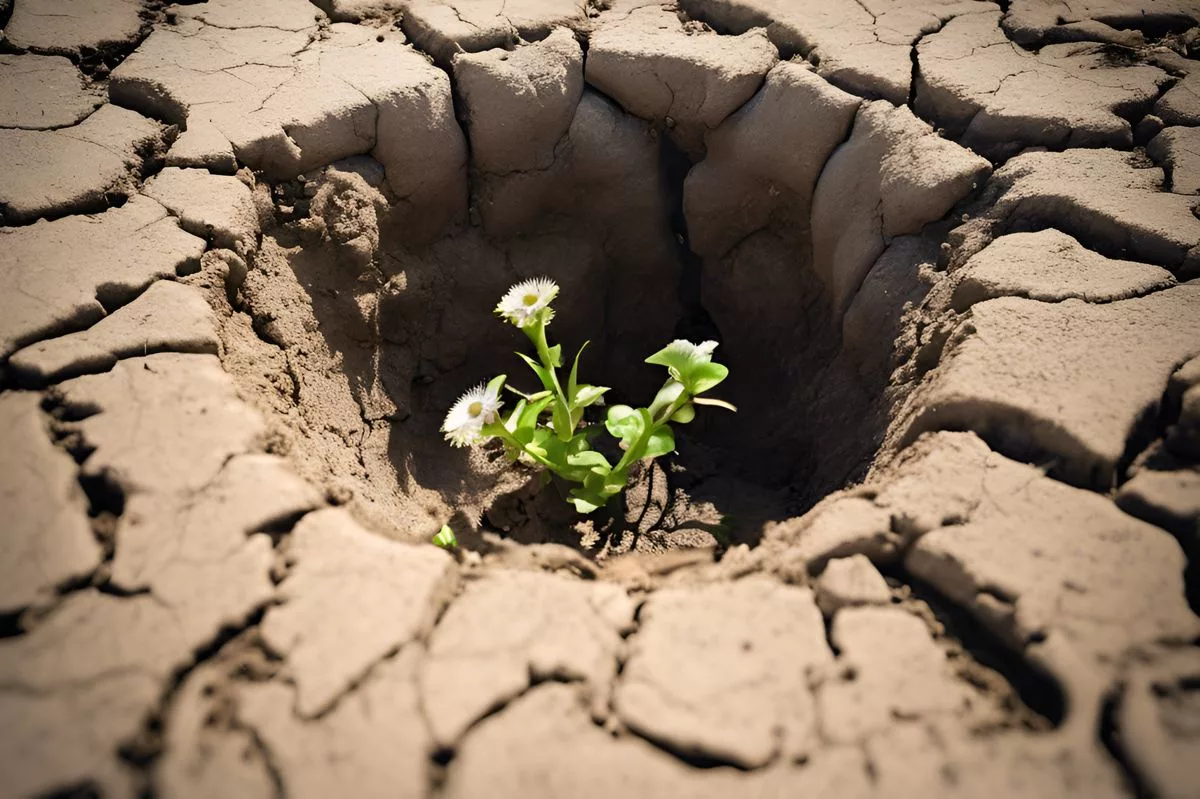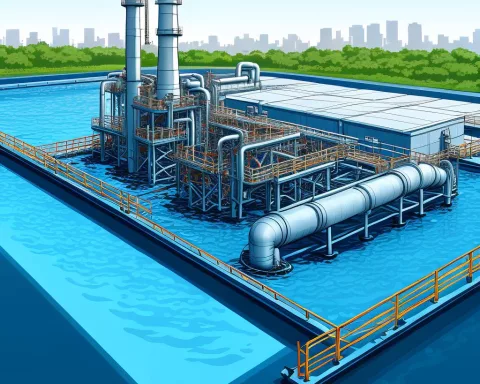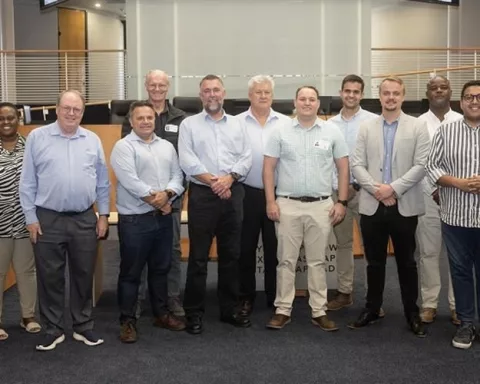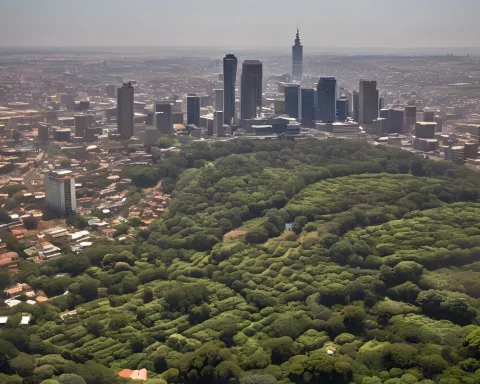Johannesburg faces a serious water crisis, with planned outages in early October for crucial repairs to the Honeydew reservoir pipe. This shutdown from 8 AM to 8 PM will affect many neighborhoods but is necessary to ensure better water service in the future. To tackle the high demand and waste, Rand Water has also introduced Level 1 restrictions, urging residents to conserve water by limiting gardening and cleaning activities during the day. The community is stepping up, sharing tips on saving water and coming together for local initiatives, showing that everyone can play a part in protecting this precious resource.
What are the upcoming water outages in Johannesburg and their purpose?
In October, Johannesburg will experience a planned water outage from 8:00 AM to 8:00 PM for essential repairs on the Honeydew reservoir pipe. This disruption is crucial for maintaining and improving water service reliability across affected suburbs to address current and future needs.
Planned Water Outage in Johannesburg: A Necessary Disruption
In early October, multiple suburbs in Johannesburg will experience a complete shutdown of their water supply from 8:00 AM to 8:00 PM. This planned outage is due to critical repairs on a GRP pipe at the Honeydew reservoir, conducted by Johannesburg Water. These repairs are essential to improve the reliability and efficiency of the water service for the future. Johannesburg Water has assured that they will provide information on alternative water supply options during the outage.
The list of affected areas is extensive, including Bellairspark, Boskruin, Boundary Park, Bromhof, Bushill Estate, Cosmo City, Honey Park, Honeydew Manor, Hoogland, Huntershill, Kevin Ridge, Kya Sands, Laser Park, Noordhang, Northriding, Northgate, Northwold, Olivedale, Randpark Ridge, Sharonlea, Radiokop, Sonnedal, Honeydew Ridge, Sundowner, Tres Jolie, Zandspruit, Harveston, Mogale City, and Kim Bult. This interruption highlights the necessity of maintaining and upgrading water infrastructure to ensure reliable service in the long term.
Addressing Excessive Consumption: Rand Water’s Level 1 Restrictions
Alongside the planned repairs, Rand Water has introduced Level 1 water restrictions throughout Gauteng. These measures are designed to manage the significant demand on the province’s water supply and will be in effect until March 2025, reflecting the critical nature of the situation. The water supply system faces additional stress from high consumption rates, illegal mining activities, and unauthorized water connections. According to Sipho Mosai, CEO of Rand Water, “The increased demand, alongside the impact of illegal activities, is creating a severe strain on our water supply system.”
Johannesburg Water’s reports align with these concerns, noting shortages caused by excessive consumption. To address this issue, the restrictions prohibit residents from watering their gardens between 6:00 AM and 6:00 PM and from using hosepipes to wash driveways or paved areas. These measures aim to reduce water wastage and ensure a more sustainable management of the city’s water resources.
Practical Conservation Tips: A Call for Collective Action
In light of the restrictions, Rand Water has offered various water-saving tips to help residents adjust. Small actions can have a significant impact on water conservation efforts. Fixing leaks, turning off dripping taps, and reusing greywater for gardening are simple yet effective steps. Mosai emphasized, “Every resident has a role to play in conserving water. We need to work together to ensure our water resources are sustained as demand continues to rise.”
Other suggestions include taking shorter showers and using a glass of water when brushing teeth. Washing cars on the grass allows greywater to nourish the lawn, further conserving household water. These practical tips underscore the importance of individual responsibility in tackling a communal challenge.
Johannesburg’s Water History: Learning from the Past
To fully understand Johannesburg’s current water crisis, it’s essential to consider the broader history of water management in South Africa. The country has faced numerous challenges, from drought periods to issues of fair distribution. The Vaal River system, a vital water source for Johannesburg and nearby areas, has been under significant pressure due to increasing urbanization and industrial activities.
The formation of the Rand Water Board in the early 20th century marked a pivotal development in managing Johannesburg’s water supply. The board’s efforts in constructing infrastructure like reservoirs and pipelines laid the foundation for modern water management in the city. However, as recent restrictions and planned outages show, these historical measures require ongoing updates to meet the growing demands of an expanding metropolis.
Art and Literature: Echoes of Water Scarcity
Water scarcity has long been a compelling theme in South African art and literature, reflecting society’s relationship with this crucial resource. South African writers such as Bessie Head and Nadine Gordimer have used the theme of water scarcity to delve into broader social and political issues, exploring themes of inequality and survival. These literary works serve as poignant reminders of water’s intrinsic value and the severe consequences of its mismanagement.
Contemporary South African artists also address water scarcity in their work. Through installations and performances, they highlight the urgent need for sustainable water management and conservation. These artistic expressions are powerful tools for raising awareness and fostering a collective sense of responsibility.
Community Resilience: Local Initiatives and Innovations
Despite the challenges, Johannesburg’s residents have demonstrated remarkable resilience and ingenuity in dealing with water restrictions and outages. In Cosmo City, community gardens have become focal points for collective action. Using greywater and rainwater harvesting techniques, residents have managed to sustain these gardens, providing both food and a sense of community.
In suburbs like Noordhang and Sundowner, residents have organized water conservation workshops. These initiatives educate people on effective water-saving techniques and foster a communal spirit of responsibility. Such grassroots efforts highlight the power of collective action in addressing water scarcity.
Technological Advances: Paving the Way for Future Solutions
Technological innovations offer promising solutions to Johannesburg’s water challenges. Smart water meters, for instance, can monitor consumption more accurately and identify leaks promptly. These devices provide real-time data, enabling residents and authorities to manage water use more efficiently.
Artificial intelligence (AI) is another innovative approach. By analyzing patterns of water usage, AI can help optimize the distribution of water resources. This technology can also aid in identifying illegal activities, such as unauthorized water connections, thereby addressing significant challenges flagged by Rand Water.
Government Initiatives: Policies and Their Impact
Effective water management hinges on robust policy frameworks and government initiatives. The National Water Act of 1998 remains a landmark piece of legislation in South Africa, aimed at ensuring equitable access to water resources. However, implementing such policies often faces delays and funding issues.
Recent government efforts have focused on improving infrastructure and involving the community. Programs aimed at fixing leaks and upgrading pipelines are essential for long-term sustainability. Public awareness campaigns also stress the importance of water conservation, urging residents to adopt water-saving practices.
The water crisis in Johannesburg mirrors broader global challenges related to water management. From planned outages and restrictions to community resilience and technological advances, the situation encapsulates the complexities of sustaining a vital resource amidst growing demand. Historical context, artistic reflections, and policy frameworks all contribute to understanding and addressing this pressing issue. As Johannesburg navigates these challenges, the collective efforts of residents, authorities, and innovators will play a crucial role in shaping a sustainable water future.
FAQ on the Water Crisis in Johannesburg
What is causing the planned water outages in Johannesburg?
The planned water outages in Johannesburg are due to essential repairs on the Honeydew reservoir pipe. These outages are scheduled for early October, from 8:00 AM to 8:00 PM, and are necessary to improve the reliability and efficiency of the water service for affected neighborhoods.
Which areas will be affected by the water outages?
The planned water outages will impact multiple suburbs in Johannesburg, including Bellairspark, Boskruin, Boundary Park, Bromhof, Bushill Estate, Cosmo City, Honey Park, and many others. A detailed list of affected areas is provided by Johannesburg Water, and they will also inform residents about alternative water supply options during the outages.
What are Level 1 water restrictions, and how do they affect residents?
Level 1 water restrictions have been implemented throughout Gauteng to manage the high demand for water. These restrictions prohibit residents from watering their gardens between 6:00 AM and 6:00 PM and using hosepipes for washing driveways or paved areas. The restrictions aim to reduce water wastage and ensure sustainable management of the region’s water resources.
How can residents conserve water during this crisis?
Residents can conserve water through various practical measures. Some tips include fixing leaks, turning off dripping taps, taking shorter showers, using a glass of water when brushing teeth, and reusing greywater for gardening. Community initiatives, such as workshops and gardening projects, also encourage collective action towards water conservation.
What historical factors have contributed to Johannesburg’s current water crisis?
Johannesburg’s water crisis is rooted in a complex history of water management in South Africa, including challenges like drought, urbanization, and fair distribution of resources. The formation of the Rand Water Board in the early 20th century was a significant step in managing the city’s water supply, but ongoing updates to infrastructure and policies are essential to meet the growing demands of the population.
How are residents and the community responding to the water crisis?
Residents in Johannesburg are demonstrating resilience by forming community initiatives. These include organizing water conservation workshops, creating community gardens that utilize greywater and rainwater harvesting, and sharing tips on saving water. Such grassroots efforts reflect the importance of collective action in addressing water scarcity and fostering a communal spirit of responsibility.












